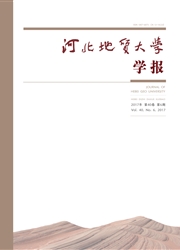

 中文摘要:
中文摘要:
员工大规模理智相比个人离职而言对企业的影响更大,近5年来组织整体层面的离职问题正成为研究热点。以往研究大多以个体离职原因与过程为重点,而关于组织层面的离职与企业绩效间的关系却结论迥异,且极少刻画两者间的作用过程。因此亟待改进离职研究以更好地解释"不同的离职对企业绩效影响何以不同"的现象。论文以对员工离职与企业绩效间的研究回顾为基础,提出以人力资本理论为依据,划分组织整体离职和企业绩效的维度,探究离职与企业绩效间的复杂关系。同时,指出基于社会资本理论并整合个人——环境匹配的研究,构建员工的动态匹配模型,并以员工匹配及其动态变化、企业社会资本及其动态变化为中介,是解释员工离职对企业绩效的作用机理的一个可能理论视角与途径。
 英文摘要:
英文摘要:
Compared with the influences of employees' individual turnover on firms,influences of employees' collective turnover on firm is more far-reaching. Thus,organizational level turnover has been becoming a hot research topic. In literature,more attention is paid on the antecedents and processes of individual level turnover,however,the relationships between organizational level turnover and firm performance are quite different and few studies give explanations on the influential processes. So more studies are required to answer the question why different turnovers have different influences on firm performance. This research,based on the review of studies on employee turnover and firm performance,puts forward that the human capital theory and dimensional divisions of firm performance are essential for exploring the complex relationships between turnover and firm performance. Meantime,it suggests that the integration of person-environment fit and social capital perspectives,construction of employees' dynamic fit model,and the mediation roles of them are a possible solution to explain the influential paths between employee turnover and firm performance.
 同期刊论文项目
同期刊论文项目
 同项目期刊论文
同项目期刊论文
 期刊信息
期刊信息
